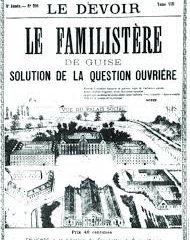Understanding McCarthy’s Influence in Canadian Politics

Introduction
The term ‘McCarthy’ often evokes memories of the intense political climate of the 1950s, particularly the anti-communist sentiments led by Senator Joseph McCarthy in the United States. However, the ramifications of McCarthyism extend beyond American borders, influencing political discourse in Canada as well. This article delves into the significance of McCarthy’s legacy on Canadian politics, exploring how the fear of communism shaped policies and attitudes within the nation.
Background on McCarthyism
McCarthyism refers to the practice of making accusations of subversion or treason without proper regard for evidence, primarily associated with the actions of Senator Joseph McCarthy during the early Cold War era. This period was characterized by heightened fears of communist espionage and infiltration, which bred suspicion and led to widespread investigations and blacklisting in various sectors, including government and entertainment.
The Influence in Canada
The spillover of McCarthyism into Canadian politics was significant. As the Cold War intensified, Canadian leaders faced pressures to align closely with American foreign policies. The Royal Canadian Mounted Police (RCMP) conducted surveillance on numerous citizens suspected of leftist leanings, which incidentally included many innocent individuals and activists advocating for civil rights and social justice. This climate of fear was compounded by political rhetoric that painted communism as a direct threat to Canadian sovereignty and values.
Policy Changes and Social Impact
As a consequence of McCarthyism, the Canadian government enacted various policies aimed at curtailing perceived communist activities. The 1950s saw an increase in loyalty oaths for civil servants and the establishment of the Security Panel, which vetted individuals for any association with leftist movements. The social impact was profound, leading to a chilling effect on free speech and political dissent, as citizens feared repercussions for their beliefs.
Conclusion
Understanding McCarthy’s influence on Canadian politics helps illuminate how fear can shape legislative and social landscapes. As modern-day debates around nationalism, immigration, and political expression continue, the lessons of McCarthyism remain ever relevant. It’s crucial for Canadians to reflect on this historical context to safeguard against the repercussions of fear-mongering and to uphold the values of democracy and freedom of expression in the face of adversity. As Canada moves forward, awareness and understanding of McCarthy’s legacy can guide citizens in fostering an inclusive and just society for all.









